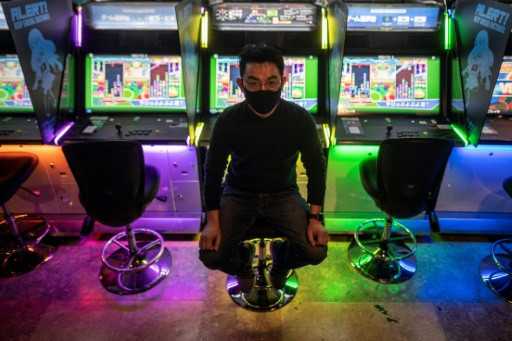Virus threatens 'game above' for Japan's arcades
13 February, 2021

Evenings are usually the busiest time in Mikado, a retro video games arcade in Tokyo, but nowadays the shutters drop early, leaving "Street Fighter" fans out found in the cold.
Bright, noisy arcades remain a neighborhood fixture found in Japan, but they have already been disappearing as organization is reach by virus-curtailed opening hours.
"This is when the area usually begins to fill," laments Yasushi Fukamachi, a good manager at Mikado, whose 250 vintage equipment attract nocturnal pupils and office workers who've just clocked off.
It really is approaching 8 p.m. and some dozen gamers wearing encounter masks happen to be fighting it from joystick classics, eking away their final moments of fun ahead of being shooed out.
Since early on January, Tokyo and other areas of Japan have already been under circumstances of emergency to lower surging virus cases. Businesses are told to close early, with feasible fines for all those that refuse.
But unlike bars and restaurants, arcades just like Mikado do not receive government money as compensation for misplaced income.
Several arcades went bust following Japan's 1st state of emergency this past year, which saw almost all of them close completely for just two months, and those that survived are now struggling.
"Buyers were slow to come back," following the first virus crisis, Fukamachi told AFP, but by November the arcade's takings were back at 90 percent of normal levels.
By late December, as COVID-19 cases soared in the administrative centre and somewhere else, this dipped to around 50 percent.
Customers stayed away in spite of anti-infection measures, from plastic material barriers between machines to the daily disinfection of 100 yen coins for the slot machines, he added.
Even prior to the pandemic, "more compact, independent video gaming centers were already closing down at an instant rate", Morihiro Shigihara, a journalist and writer who once managed an arcade, told AFP.
The quantity of Japan's arcades has plunged from 22,000 in 1989 -- around ten years following the release of "Space Invaders" -- to just 4,000 in 2019, according to police, who permit the establishments.
And since late last year, numerous well-known arcades in Tokyo have shut up look for good, including found in the entertainment districts of Akihabara and Shinjuku.
"The fact that possibly big arcades are going out of organization one after the different shows the situation's severity," said Shigihara.
Gaming huge Sega in November marketed off 85 percent of its arcade organization, although its logo still adorns game centers nationwide that are actually run by another firm.
With consumers more likely to own a system, and facing competition from cellular games, arcades have had to adapt to survive.
More than half of a typical arcade's takings are now from rewarding claw-crane toy machines, according to the Japan Amusement Sector Association.
Video gaming only accounted for 13 percent of arcade product sales in 2017, straight down from a third in 1993, it says.
Sense of community
Although they have grown to be a rarity in many other countries, arcades have held a location in urban Japan instead of small living areas and a gathering point for dedicated gaming communities.
"Among the pleasures of arriving at an arcade is usually to be in a position to strike up a conversation, to know very well what mind-set others are playing in," Mikado frequent Atsushi Nakanishi, 43, told AFP.
Hiroshi Suzuki, 28, said that since the arcade he used to frequent closed, he has dropped contact with persons he used to learn there.
"It's sad. An agreeable and social place possesses disappeared," Suzuki said.
Mikado supervisor Fukumachi jokes that his arcade will survive -- "a bit just like a cockroach".
He is planning for a new crowdfunding campaign to stay afloat, having raised around 35 million yen through his first last planting season.
"The government does nothing to greatly help us out of the hopeless situation," Fukamachi stated.
But closing would betray loyal clients who showed their "like" for the business with donations, he added.
Fukamachi can be thinking up post-pandemic survival tactics, because he believes the shift to telework and staying house will last.
Each night, Mikado goes live to 80,000 YouTube followers, streaming video-game matches in an effort to reach gamers stuck in the home and earn advertising money.
Other arcades, "that continue with business as common, are affected," he warned.
Source: japantoday.com
